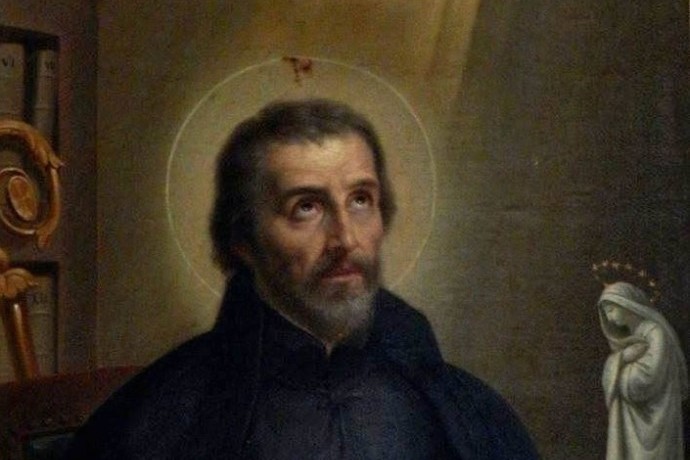
Saint Of The Day For December 21: Saint Peter Canisius
The first Dutch Jesuit, St Peter Canisius, who lived in the 16th century, is venerated as the second Apostle of Germany after St Boniface.
A learned writer, he was one of the architects of the spiritual renewal of the Catholic Church promoted by the Council of Trent.
The sleepiness of the good of Saint Peter Canisius
“You see, Peter is asleep, Judas is awake”.
These words of Peter Kanijs are quoted by Pope Benedict XVI at the beginning of Lent 2011, and described as ‘a cry of anguish in its historical moment’, intended to shake ‘the sleepiness of the good’.
He was born in 1521 in Nijmegen, a Dutch village that was then in the Germanic duchy of Gelderland and, therefore, in the Holy Roman Empire.
“You know, Lord, in how many ways and how many times on that same day you entrusted me with Germany for which I would later continue to be solicitous, for which I would wish to live and die.”
He entered the Society of Jesus in 1543, after having made the Spiritual Exercises under the direction of Pietro Favre, and attended the Council of Trent in 1547 and 1562, expressly called by the Bishop of Augsburg, Cardinal Otto Truchsess von Waldburg.
On this occasion he began to use the Latin form of his name.
In the spirit of the Catholic Reformation promoted by the Tridentine Council, his main mission was the reawakening of the spiritual roots of the individual faithful and the body of the Church as a whole.
Around Europe
After a short time in Rome and Messina, he was sent to the Duchy of Bavaria, where he worked as dean, rector and vice-chancellor of the University of Ingoldstadt.
Then to Vienna, where he was administrator of the diocese and popular preacher in St Stephen’s Cathedral, also devoting himself to pastoral ministry in hospitals and prisons.
In 1556 he was appointed the first Father Provincial of the Province of Upper Germany.
He created a network of Jesuit communities and colleges in the Germanic countries, always in the spirit of supporting the Catholic reform; with the same aim, he participated in important negotiations as an official representative of the Church.
“In his loving providence,” wrote St John Paul II in his letter to the German Bishops on the occasion of the 4th centenary of his death, “God made St Peter Canisius his ambassador at a time when the voice of the Catholic proclamation of faith in German-speaking countries was in danger of falling silent.”
Saint Peter Canisius, ‘Ambassador of the Catholic proclamation’
“St Peter Canisius spent a good part of his life in contact with the most socially important people of his time and exerted a special influence with his writings.
He was editor of the complete works of St Cyril of Alexandria and St Leo the Great, the Letters of St Jerome and the Orations of St Nicholas of Fluë.
He published devotional books in various languages, biographies of some Swiss saints and many homiletic texts.
But his most popular writings were the three Catechisms composed between 1555 and 1558.
The first Catechism was intended for students able to understand elementary notions of theology.
The second for the children of the populace for a first religious instruction; the third for boys with a middle and high school education.
Catholic doctrine was expounded with questions and answers, briefly, in biblical terms, very clearly and without polemical overtones.
In the time of his life alone there were no less than 200 editions of this Catechism!”
His work in favour of the Catholic Reformation, supported by his affable and courteous manner, met with the full approval of both Emperor Ferdinand I and Pope Gregory XIII: he did not like to emphasise heresies or errors in doctrine as much as highlighting the perennial new aspects of Catholic doctrine.
In his last years he founded the Sankt Michael college in Switzerland in Freiburg in 1580, which was later transferred to Feldkirch and finally to St. Blasien in the Black Forest.
When he died on 21 December 1597, he was buried in the university church of Freiburg Sankt Michael.
Read Also:
Saint Of The Day For December 19: Saint Anastasius
Saint Of The Day For December 17: Saint Daniel
Saint Of The Day For December 16: Saint David
Women And The Art Of Speech: Economy Of Francesco’s Solidarity With The Women Of Iran
8 December 1856: Lyon, SMA (African Missions Society) Is Founded
D.R. Congo: Congolese Catholics Take To The Streets To Protest Increasing Violence
DR Congo, They Were Organising A Peace March: Two Women Kidnapped In South Kivu
